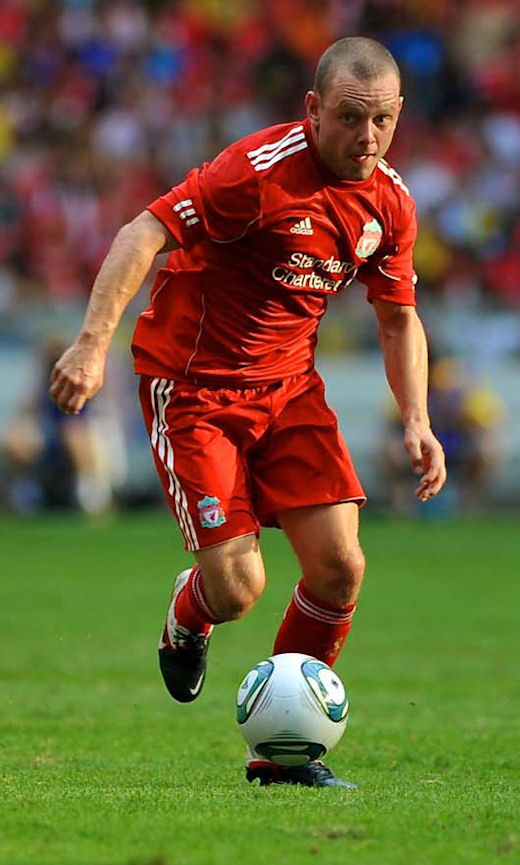This article first appeared in the Jan/Feb 2012 issue of World Gaming magazine.
The ball is finding its way to the back of the net far more often this year in the EPL. Managers have switched focus from all-out defense to trying to score with every attacking opportunity. And football is the winner.
Do you remember the so-called super matches between José Mourinho’s Chelsea and Rafa Benitez’s Liverpool during the 2006-2007 season? In that season, these two clubs met twice in the Premier League and twice in the Champions League. In these highly forgettable games, both teams managed to score a mere five goals between them. These games were so boring that the former Real Madrid manager, Jorge Valdano, likened them to “a shit hanging from a stick”. He also insisted that these games were ushering in a “bleak future for football”. Thankfully, Valdano has been proved wrong and a new open style of play is making the Premier League the most eye-catching national league in Europe.

Let’s have a look at some of the statistics from the first quarter of the current season (featuring games played between the Premier League teams that have qualified for the Champions League). The total amount of goals scored when these teams clashed was 7.2 goals per game. This is an astonishing statistic. It would be understandable if good teams were accumulating big scores against weaker teams, but these scores are from the best in the EPL going head to head.
When Arsenal visited Old Trafford, they were beaten 8-2 by United. The Manchester Derby ended with seven goals scored, resulting with United on the end of a 6-1 thrashing. A revitalized Arsenal team travelled to the fortress that is Stanford Bridge, and managed to put the ball in the net five times against Chelsea. Times have changed since Chelsea’s former manager, José Mourinho, declared “Five-four is a hockey score, not a football score”, after watching Arsenal conquer Tottenham Hotspur by 5-4 at White Hart Lane in a 2004-2005 classic. José might be glad he has moved on from the EPL, as goals appear to be on the menu now and no one is complaining.

When Arsenal visited Old Trafford, the Gunners were still struggling with the departure of their key players, Samir Nasri and Cesc Fabregas. Not having key centre back Thomas Vermaelen also didn’t help. Arsenal manager Arsène Wenger recently commented that the increase in scoring “is down to the fact that there are so many good offensive players on the pitch”.
Premier League managers have reshuffled and strengthened their attacking line-ups this year. Manchester United brought in Ashley Young from Aston Villa to replace the aging Ryan Giggs. This increased the Red Devil’s ability to create chances from two flanks. Meanwhile, Manchester City opened its bank account to bring Sergio Agüero and Samir Nasri into their squad. Roberto Mancini, the City manager, has created a fearsome attacking group that has reigned terror on beleaguered backlines all year.
The Premier League has never been short on talent but in the past backlines have kept scores under check. So what is behind the surreal scorelines this season?
André Villas-Boas in a recent interview observed, “In England, football is fuelled by the emotions of the people. The fans want you to be quick, to accelerate the action, and possession and patience are not appreciated as much. It is a cultural thing.”
He went on to claim that when he is in the dugout, all he can hear is the frantic demands from the fans yelling, “Attack, attack, attack!”
In England, fans will even boo their own players for back passing. Fans have become frustrated with the philosophy of controlling and passing the ball between the back four waiting for space to open up downfield. Sergio Agüero, the new Manchester City striker, was quick to notice that clubs like to water the pitch heavily before games to speed up the ball. Football technique and speed is respected in England and so is the scoring of goals.

Barcelona can enjoy some of the credit for this shift in the English game. When the Spanish giants dismantled Manchester United at Wembley last May, there was a feeling that English football would need to go to a new level to compete with Barca’s dominance. The normal practice in football is to take the lead and then hold onto it. But fans want to see their teams play for the whole game. This year Premier League teams have continued to attack, even when they are leading and in a comfortable position. A great example of this was the Manchester United and Chelsea clash at Old Trafford. Even when the score was 3-1, United kept pressing forward and creating chances. This in turn gave Chelsea loads of glorious scoring chances, one of which was when Fernando Torres missed the simplest of shots. This incident was branded “The Miss of the Century”.
Football is big business and owners understand fans want to see exciting football. The main reason that Chelsea’s owner, Roman Abramovich, was so keen on 33-year-old André Villas-Boas was for his attacking football. Even after games against Manchester United and Arsenal, where the Blue’s defense gave away eight goals, Villas-Boas was still confident with his system. He declared that “philosophy is a personal value and a club value, and you should never sell it cheaply.” After the defeat by Arsenal, Villas-Boas went on to say that “Our defensive organisation was not a problem before this game”. If Abramovich won’t stand for boring defensive football anymore, then Villas-Boas is going to continue to let his players create opportunities.
The EPL boasts a global audience of 4.7 billion with 211 countries showing the game live. Fans want exciting football which means goals being scored. The pragmatic football of the past (from managers like José Mourinho and Rafa Benitez) would not appeal to most fans now. Even Roberto Mancini, the architect of City’s solid defense in the last two seasons, is now getting much more offensive.
As the Premier League evolves into a more open league it will continue to attract even more fans. The EPL governing body will also be getting very excited at the mouth-watering prospect of even larger broadcasting rights payments, as the boring 0-0 draws and grinding 1-0 wins become the exception, not the norm.







